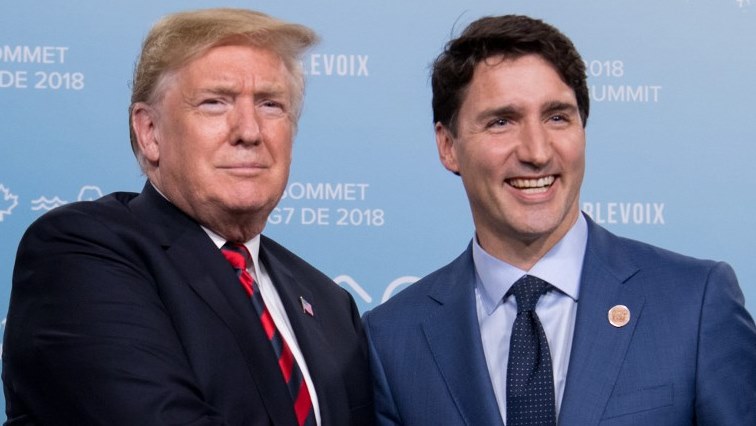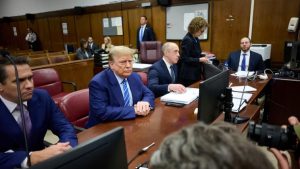Any fondness between Justin Trudeau and Donald Trump has vanished, it became clear Thursday after the Canadian leader brushed off the US president’s criticism of Canada’s negotiating style in continental trade talks — casting doubts for a quick deal.
Trudeau said Trump views the negotiations to revamp the North American Free Trade Agreement (NAFTA) as hard “because Canadians are tough negotiators, as we should be.”
Those efforts have stalled after a year of talks, despite ramping up in recent weeks after the US and Mexico made a breakthrough on bilateral issues.
According to the negotiators, Canada’s insistence on a trade dispute provision and its refusal to open up its protected dairy sector are the last major sticking points.
Ottawa is also seeking assurances that the United States will not, after signing a new NAFTA deal, turn around and hit Canada with punitive auto tariffs.
Canada’s ambassador to Washington David MacNaughton this week put the chance of concluding an agreement soon at 50/50.
“A good and fair deal is still very possible,” Trudeau said. “But we won’t sign a bad deal for Canada.”
On Wednesday in New York, Trump said he refused to meet with Trudeau on the sidelines of the UN General Assembly because Canada was treating the United States “very badly.”
“I must be honest with you, we’re not getting along with their negotiators,” Trump said. “We think their negotiators have taken advantage of our country for a long time.”
“With Canada, it’s very tough,” he said, adding that there was “still a chance” of reaching a deal.
“I’m not making (a deal that is) anything near what they want to do,” the American president added.
Trudeau’s Liberal government had launched a charm offensive in Trump’s early months in office to try to curry favor with the new president.
But their close relationship — once the envy of other foreign leaders — came to a crashing end following a divisive and bad-tempered summit of G7 nations in Canada in June, which saw Trump ramp up his rhetoric against Trudeau.
While Trudeau has tried to keep his head down and avoid further antagonizing Trump, he also has stood firm in demanding a fair deal in the trade negotiations.
“I think (the Canadians) gave it their best shot,” Colin Robertson, a former Canadian trade negotiator who helped deliver the original 1994 NAFTA, told AFP.
He said Trudeau tried for a good working relationship with Trump, “but at some point (he) realized it just wasn’t working.”
Observers said Canada now appears to be using Trump’s September 30 deadline for a NAFTA deal to try to get concessions from the Americans.
Trump would prefer to have the current Republican-controlled Congress ratify a deal before the November mid-term elections, and hold it up to voters as a win.
“Everyone is playing hardball,” said University of Ottawa professor Patrick Leblond. “Canada doesn’t care about the deadline and figures that if the US does, it’s up to them to make compromises.”
“The big question is what will Congress do?” he said.
If the Democrats sweep the November elections, they may wish to deny the Republican president any political wins going forward, and insist that Canada be part of any new continental trade pact.
If the Republicans maintain their majority, they may support Trump’s wishes — including killing NAFTA and moving forward with a US-Mexico trade agreement, without Canada.
“It’s a high stakes game (Trudeau’s) Liberals are playing right now,” Leblond said. “But they have no choice.”
If Trudeau caves to Trump’s demands for more access to its dairy sector, for example, his party would take a hit in next year’s general election.
If he holds firm and Canada loses its special access to the US market under NAFTA, it would be “catastrophic” for the Canadian economy — likely pushing it into a recession — as well as politically devastating.
“Canada is damned if it does, damned if it doesn’t,” opined Leblond.
“Given that, it makes sense for Canada to take a chance that the Democrats take Congress and will be more open to Canada’s position,” he concluded.






